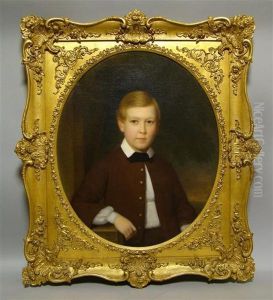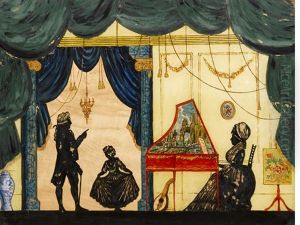John Beale Bordley Paintings
John Beale Bordley was born on February 11, 1727, in Chestertown, Maryland, into a prominent family. His life spanned a period of significant transformation in American history, witnessing the colonial era, the struggle for independence, and the early years of the United States. Bordley was not only a figure of historical interest due to his involvement in the agricultural and judicial reforms of his time but also because of his contributions to art, particularly through his interactions with notable artists and his patronage.
Educated initially under private tutors, Bordley later attended the College of Philadelphia (now the University of Pennsylvania), where he was exposed to the Enlightenment ideas that were sweeping through the intellectual circles of the colonies. This education laid the foundation for his diverse interests in agriculture, law, and the arts. After completing his education, he pursued a career in law, becoming a prominent lawyer and eventually serving as a judge in Maryland's colonial and state courts.
Bordley's interests, however, extended far beyond the legal realm. He was deeply involved in agricultural experimentation, advocating for crop rotation and soil conservation techniques that were progressive for his time. His estates became experimental farms where he implemented and promoted these advanced agricultural practices. Bordley's writings on agriculture were influential, contributing significantly to the early American agrarian discourse. His work in this area reflected a broader Enlightenment belief in progress through reason and scientific inquiry.
In the realm of the arts, John Beale Bordley's legacy is more nuanced. While not an artist himself, he was a notable patron of the arts and a member of the intellectual elite who fostered the cultural development of the American colonies and the early United States. His correspondence and interactions with artists of his time provide valuable insights into the cultural milieu of the period. Bordley was known to commission artworks, thereby supporting the nascent American art scene. Through his patronage and engagement with artists, Bordley played a role in the cultivation of a distinct American cultural identity in the arts during a formative period in the nation's history.
John Beale Bordley passed away on January 26, 1804. Though primarily remembered for his contributions to agriculture and law, his impact on the cultural and artistic life of his time remains a noteworthy aspect of his multifaceted legacy. Bordley's life and work exemplify the Enlightenment spirit of inquiry and improvement, spanning the fields of law, agriculture, and the arts, and marking him as a significant figure in the early history of the United States.

